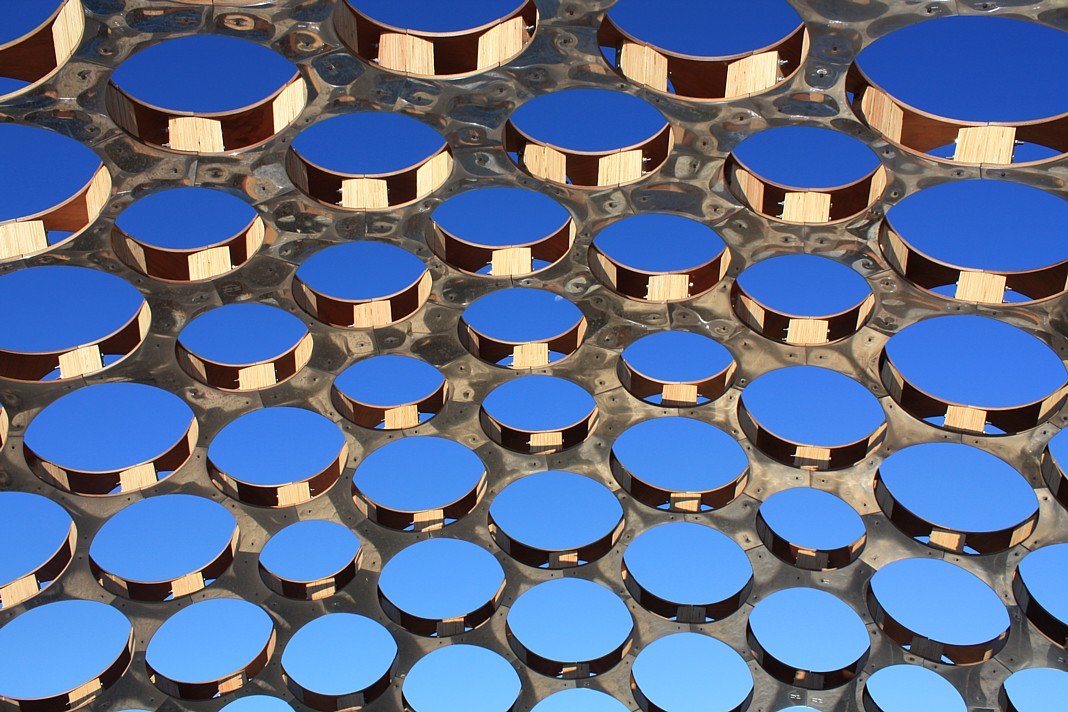-
Posts
17 -
Joined
Recent Profile Visitors
The recent visitors block is disabled and is not being shown to other users.
Gojko & Stojko's Achievements
-
Politika, 17.01.2008. : Kako je Tito spasao Izrael Vreme, 7.10.2021. : Mirotvoračka misija Josipa Broza Tita Slobodna Evropa, 22.09.2023. : Zbog spomenika misiji iz 1948. Crna Gora u izraelsko-palestinskom sporu SaE
-

Zdravlje i medicina - pitanja o svemu i svačemu
Gojko & Stojko replied to Eddard's topic in Nauka i Obrazovanje
Meni za ovo što ti opisuješ pomaže Lemsip, sa sastavom sličnim ovome što ti tražiš: 1000mg Paracetamol, 12.2mg Phenylephrine Hydrochloride and 200mg Guaiphenesin. SaE -
Otišao kod dugobradih vračeva da priziva kišu, da bi mu porastao Dunav, napunile se akumulacije i sačuvao EPS. Genije. SaE
-
Sa gornjeg linka, sa kraja vrlo dobro sažetog teksta o australijskom slučaju: And the result? In the decade before gun law reform in Australia there were 13 mass shootings. During the 22 years that followed there were none -- a record broken only when a farmer shot and killed six members of his family, then himself in 2018. (A mass shooting is defined here as five or more people shot dead, not including the perpetrator). Following gun law reform, the risk of dying by gunshot in Australia fell by more than 50% and stayed there. Globally, Australia saw one of the largest annual rates of change in its number of firearm-related deaths. The country's rate of gun homicide is now 33 times lower than that of the US. I u Australiji je na snazi dvopartijski sistem sa preferencijalnim glasanjem, pa se opet desilo da je zakone o posedovanju oružja promenila baš konzervativna vlada. Za razliku od korone gde je broj umrlih po glavi stanovnika u odnosu na "the best democracy money can buy" u totalitarnoj Australiji manja deset puta (a tu je negde , tj. deset puta mnja i smrtnost od korone, tj. broj umrlih u odnosu na broj obolelih), gore lepo kaže da je u totalitarnoj Australiji broj ubistava vatrenim oružjem 33 puta manji nego u "the best democracy money can buy". Šta misliš, da ti nisu slobodoljubivi Republikanci prodali rog za sveću po ova dva pitanja? SaE
-
A ovo ti je rekao Rupert lično, ili si sam proverio? Ja nisam obavešten a proveo sam dve godine onomad ovde šetajući se svakog dana, koliko vidim za te dve godine je u "The best democracy money can buy" umrlo preko milion ljudi, tj. nekih preko tri hiljade na milion stanovnika. Za to vreme je u totalitarističkoj Australiji umrlo malo više od trista ljudi na milion stanovnika, to jest nekih deset puta manje nego u "land of the free". SaE
-
Od melburnškog dopisnika Njujork Tajmsa, iliti, zašto valja gledati opskurni jugoslovenski film "Vlak u snijegu" sa pjesmicom "što će nama zajednica kad se jede gibanica, dok je mesa i bombona nećemo iz tog vagona, hej što nam mogu, što nam mogu snijeg i stud, hej neka radi, neka radi ko je lud!" How Australia Saved Thousands of Lives While Covid Killed a Million Americans Share & Enjoy
-
Ovo je sinoć išlo na državnoj TV, ima i deo iz Srbije. Uz video ima i transkript. Digging In: Why powering a green future means more mines Share & Enjoy
-
Likuju, za njih je ovo početak ispravljanja istorijske nepravde još od 1949., kad se skupila vojna sila na granicama Jugoslavije i na njihovu žalost nije ušla da je odvrati od zagrljaja sa zapadom. 1991. su se ponadali sa pučem u Moskvi ali im je to propalo. SaE
-
Taj deo je OK, ono sa "dokazom da USA postaje socijalistička" je dokaz da te činjenice baš i ne dotiču previše. Inače, Rio Tinto je juče objavio finalne rezultate poslovanja za 2021. i najavio najveće dividende u australijskoj korporativnoj istoriji. Paradoksalno, najviše para će da ode u kinesku državnu firmu 🙂 (što jeste neka pravda, jer je dobar rezultat posledica kineske gladi za rudom gvožđa koja je očigledno za brata Sija previše važna da bi se na nju primenjivale kineske trgovinske sankcije Australiji koje važe čak i za ugalj i ostavljaju posledice u nestajanju struje u nekim regionima Kine). Rio Tinto breaks profit, dividend records Rio Tinto has posted the second biggest profit in Australian corporate history and will reward shareholders with the nation’s biggest ever dividend worth $US16.8 billion ($23.24 billion). SaE
-
Tebe činjenice baš ne daju omesti, a? Da si uopšte pogledao na grafikon, video bi da su američke subvencije odavno u padu, da su pre dvadeset godina bile daleko veće. Trend je za neko vreme promenio riđokoso govedotm dok je bio predsednik (pod njim je USA postajala socijalistička, šta li), jer je time kupovao podršku ruralnih glasača za trgovinski rat sa Kinom, ali čak je i on krajem mandata smanjivao subvencije. Zemlje sa komparativnom prednošću tipa Argentina, Ukrajina, Novi Zeland i Australija imaju daleko manje subvencije od ostalih zemalja, naravno. Japan koji na silu proizvodi pirinač ima subvencije od preko 40%. SaE
-
Američke subvencije farmerima su preko 10%, australijske su manje od 2%. U EU su blizu 20%. Može da se pogleda ovde (ako se odaberu samo EU, USA i Australija, očigledna je razmera) Share & Enjoy
-
U Portugaliji vlast tretira narod kao odrasle osobe pa im zato i narod uzvraća poverenje i kad mu se kaže da treba narod odlazi da se vakciniše: Differences in culture, the availability of treatment and support services for drug-related issues, problems with accurate and consistent data collection, and variation between models of decriminalisation make evaluative comparisons between countries challenging. Similarly, attempting to ‘transplant’ any model wholesale to another country should involve rigorous consideration of the differences between the nations, and how the policy may need to be adapted for a new location. Internationally, many countries including Denmark, France, Germany, and Norway have adopted some form of decriminalisation. The most commonly discussed example is that of Portugal, which has received considerable international attention – Australia’s Joint Committee on Law Enforcement visited Portugal in 2017 to investigate its model. A brief outline of the approach Portugal has adopted is provided here to illustrate one frequently cited model. Portugal All drugs were decriminalised in 2001 on the advice of a multi-disciplinary expert committee. They recommended that the nation also focus efforts on prevention, education, harm reduction programs and expanding access to treatment as well as other support networks (e.g. connections to family). Trafficking remains a criminal offence. Personal use is distinguished from trafficking by a threshold quantity of a drug, set at approximately 10 days’ worth of personal supply. In the Portuguese model, a person found possessing or using drugs is assessed by the Commission for the Dissuasion of Drug Addiction (CDT). People considered to be experiencing a dependence are referred to treatment. People who are not experiencing a dependence have other penalty options, such as referral to an educational intervention or paying a fine. The emphasis within this model is on drug use as a health and social issue and referring a person to interventions appropriate to their circumstances (e.g. if they’re experiencing a dependence). Conflicting claims have been made about the outcomes of the Portuguese model. These depend on what datasets were used and which indicators considered. For example, if researchers chose to consider indicators of either the ‘lifetime use’ of drugs or the ‘problematic use’ of drugs. A study analysing these conflicting claims determines that “while general population trends in Portugal suggest slight increases in lifetime and recent illicit drug use, studies of young and problematic drug users suggest that use has declined”. The Federal Parliamentary Joint Committee on Law Enforcement noted in its final report that decriminalisation cannot account for all positive improvements in health outcomes because of the simultaneous investment in treatment services. However, they further noted that decriminalisation may enable people who use drugs to seek treatment without fearing potential criminal penalties. Reports indicate that people in pharmacotherapy (substitution) treatments increased by 147% between 1999 and 2003 – from 6,040 people to 14,877 people. Pressure on the criminal justice system appears reduced as fewer people are charged with drug offences and enter prison. By 2013 only 24% of prisoners were charged with drug offences compared to 44% in 1999. It is critical that the example of Portugal be examined in the full context of investment in treatment and recovery support. Perhaps the most important message from Portugal is that: “Decriminalization is not a silver bullet. If you decriminalize and do nothing else, things will get worse. The most important part was making treatment available to everybody who needed it for free. This was our first goal.” - João Castel-Branco Goulão, Portugal’s National Coordinator on Drugs, Drug Addiction and the Harmful Use of Alcohol General-Director of SICAD. Share & Enjoy
-
Foka u ustima kita SaE
-
Neke stvari se u majčici obavljaju teško jer narod nije informisan. Žena i ja smo produženje srpskih pasoša pre pet godina (2014.) zakazali preko neta iz Australije (ništa Mika Pera Žika), u zakazano vreme se pojavili pred vratima kancelarije u MUP Stari grad, službenica tačno u 9 otvara vrata i proziva nas, a nekoliko ljudi koji su čekali ispred se buni kako sad to ... SaE
-

POPULIZAM- političari, pokreti, botovi i cyber warfare
Gojko & Stojko replied to melankolic's topic in Društvo
Organizacija pod čijim pokroviteljstvom je održan građanski parlament (valjda se ovaj termin upotrebljava u srpskohrvatskom za citizen's jury) u kome sam učestvovao (trajao je pet nedelja, jednom nedeljno po nekoliko sati) se zove newDemocracy, vidim da prenose još iskustava iz sveta, posebno interesantan je ovaj tekst o primeru iz Belgije, ima li neko ko zna nešto više o tome iz prve ruke? SaE





